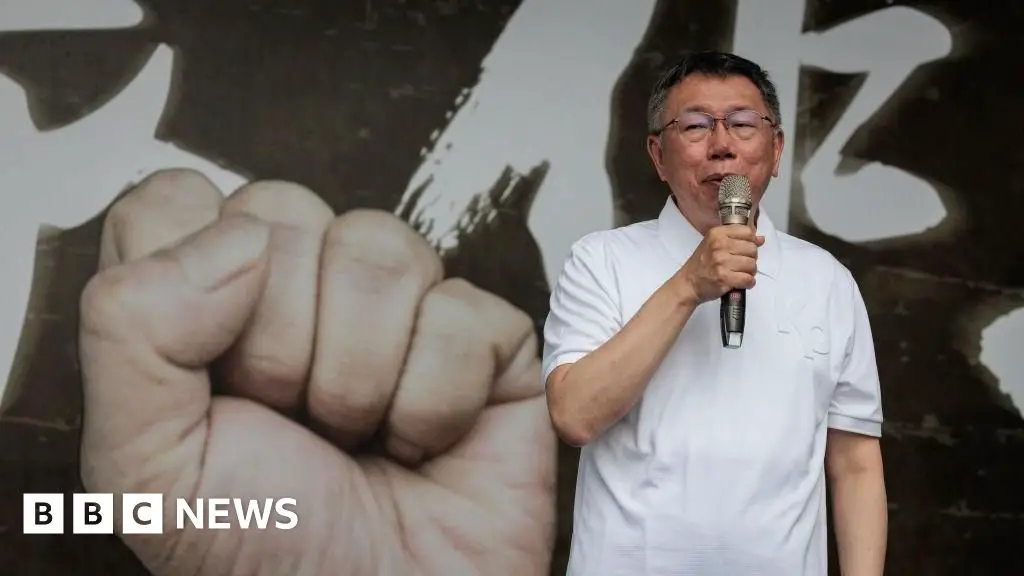Ko Wen-je, once a rising star in Taiwanese politics and presidential candidate, was indicted on corruption charges on Thursday.
The 65-year-old is accused of accepting half a million dollars in bribes in connection with a real estate deal during his term as Taipei mayor and of making false statements about campaign finances during his presidential bid in January.
Prosecutors are asking for up to 28.5 years in prison.
Ko’s indictment deals a decisive blow to the political movement he represents, which has appealed to voters seeking an alternative to the ruling People’s Democratic Party and the main opposition Kuomintang.
Ko, who denied the corruption allegations, was arrested and detained in September.
The public prosecutor’s office said on Thursday that he was among eleven people who would be prosecuted. Several other members of his Taiwan People Party were also charged with embezzling political donations.
A dark horse in January’s presidential electionKo won more than 25% of the vote – not far behind ruling party candidate Lai Ching-te’s 40%.
Observers said at the time that even though Ko finished last among the three presidential candidates, his remarkable performance pointed to voters’ demand for a more pluralistic political landscape beyond the two main parties.
Ko rose to prominence by branding himself as the third choice alongside the two major parties. He criticized the DPP for stoking tensions with Beijing, which views the self-governing island as its territory, but also accused the KMT of being too deferential.
After supporting protesters during the anti-Beijing Sunflower Movement in 2014, Ko was elected mayor of Taipei as an independent candidate.
He won a second term in 2018, but his policies appeared to be changing and he expanded Taipei’s ties with mainland China.
Long known as a wild card in Taiwanese politicsKo has stirred controversy with his bold rhetoric and bizarre campaign ideas. He has been described as a “gaffe” and starred in a rap video during his 2018 re-election campaign.
After his defeat in the presidential election, he vowed not to give up his political career and was expected to seek the presidency again in 2028. However, it remains to be seen whether his party can recover from the wave of prosecutions.
Ko’s arrest sparked protests from his allies and supporters, who accused the DPP of using the allegations to suppress its opponents.





